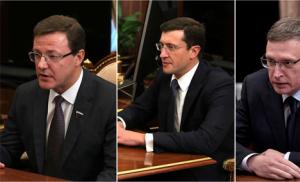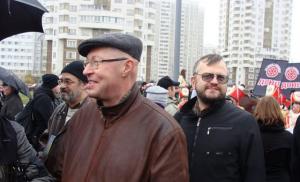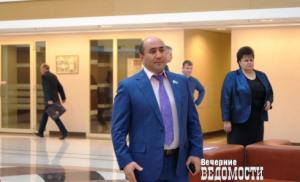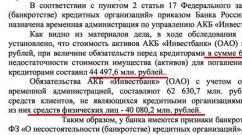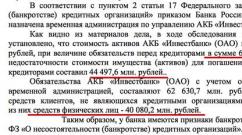How many words do we use? Vocabulary: optimal size and ways to increase.
The Russian language is rich in vocabulary. Dahl's dictionary contains about two hundred thousand lexical units. AT Everyday life much fewer words are used.
Age norms for the number of words used
The number of words used changes throughout life. According to medical standards, the number of words a child uses preschool age should be between two and three thousand. During the years of schooling, the active dictionary is replenished up to five thousand.
For people who have received higher education, the norm is a vocabulary within ten thousand words.
A group of scientists from America and Brazil conducted a study of age-related changes in vocabulary. Two hundred thousand people participated in the experiment, so the data obtained during it can be considered quite accurate.
The survey showed that the maximum rate of mastering new words falls on the age from three to sixteen years. During this period, a person learns an average of 4 new words every day.
After the age of sixteen, the speed decreases markedly and, up to fifty years, there is about one new word for every day of life. People over the age of fifty retain the previously acquired baggage of words, but practically no new ones are added.
How many words do you need for everyday communication?
It is necessary to distinguish between the concepts of active and passive vocabulary. For example, reading fiction requires the reader to know tens of thousands of words and phrases. But you don't have to use them all every day.
For an adult in ordinary life, a thousand words can be enough during the day if he professional activity unrelated to communication. But this is an extreme option; for full communication, at least two thousand are required. Professionals in different fields add one and a half to two thousand more special terms.
How many words do you think the average person knows? Everyone remembers the well-known excerpt from the immortal work of E. Petrov and I. Ilf "The Twelve Chairs" about the comparison of the vocabulary of Shakespeare and Ellochka the Cannibal. The same quote can be cited as a confirmation of the hypothesis that the lexicon of a person depends on what this person is like. For example, an uneducated person or a small child will be several hundred; literate - several thousand.
And such geniuses as Pushkin or Shakespeare will have up to fifteen thousand. By the way, clarifications should be made on the account of the latter. The four-volume Dictionary of Pushkin's Language has 21,191 words. Scientists have calculated exactly this number of words used in all letters and works of the famous Russian poet. Vocabulary the great English playwright has a little less - about fifteen thousand words. But according to some sources, there are about eighteen thousand of them. With regard to ordinary people the picture looks somewhat different. But first, let's figure out what a lexicon is. We also define the concepts of passive and active vocabulary. So...
What is a lexicon?
From ancient Greek means "word", "turn of speech". The exact lexicon sounds like this: a combination of words of a particular language, parts of words or a language that a particular person or a certain group of people speaks. Vocabulary is the central part of the language that names, forms and conveys knowledge about any phenomena or objects. In other words, this is a language section that studies words, pronunciation, composition of speech, etc.

Passive and active vocabulary
When we are talking about a certain set of words that a person uses daily in his speech, which he uses to express his feelings and thoughts, then this implies an active vocabulary. The use and combinatorics of such words can be varied. But it is still a "tool" of thoughts, feelings, actions. In the case when a person does not use certain words, but knows their meaning (often very approximate), he recognizes in readable text, that means passive vocabulary. The passive lexicon includes words of special use: neologisms, archaisms, many dialectisms, and the like.
Number of words in the lexicon

It should be noted, returning to the question of what a lexicon is, that the active and passive dictionaries are individual for each person. It depends on the age, profession, general cultural level, personal qualities, tastes and even the place of residence of a person. According to statistics, the active vocabulary of an adult with a higher education is seven to nine thousand words. Passive - twenty-twenty-four thousand. Although in everyday communication we manage with only one or two thousand words. It is said that the possibilities of human memory are almost limitless. Therefore, you can safely increase your vocabulary and learn foreign words, thereby enriching the Russian lexicon.
Every day we communicate with other people, say hundreds of words, work with documents, browse the Internet, correspond with friends and relatives, read magazines and newspapers, watch movies and TV shows. In the process of communication, transmission and perception of information, our consciousness processes a lot of words. How many words does a person need to know in order to fully communicate, to know the world and the surrounding reality?According to various scientists, in English language about one million words, in Russian - from two hundred to five hundred thousand, Czech contains about fifty thousand words. But this does not mean at all that in order to master the language, you need to learn such a huge number of words. The fact is that our vocabulary is divided into two types - active and passive. Active vocabulary is words that a person knows and actively uses. Words, the meaning of which a person knows, but which he rarely uses, constitute a passive vocabulary. Of course passive margin several times more active. Researchers of William Shakespeare's work have calculated that in his works he used about twenty thousand words, in the literary heritage of Karel Capek there are almost thirty thousand words. However, this does not mean that in everyday life the great writers expressed themselves in a complex and ornate manner, using all their lexical baggage.
According to linguists, the vocabulary that a European, including the average Russian, manages in everyday communication is about a thousand words. The active vocabulary is approximately two to three thousand words. Thus, for language proficiency in entry level a few hundred frequently used words are sufficient. Here is an approximate gradation of vocabulary volume:
1. 400-800 words- lexical baggage necessary for basic level knowledge of the language;
2. up to 1500 words- a reserve that allows you to explain and read literature at an elementary level;
3. up to 3000 words- a reserve with which you can confidently communicate at the everyday level and fluently read non-specialized literature;
4. 5000 words in lexical baggage they will provide free reading of the press and specialized literature;
5. 8000 words enough for comprehensive communication, reading literature of any degree of complexity, watching television programs and films.
Consideration that these figures are only a rough estimate of the number of words needed to communicate at a certain level, and, as a result, the number of words that need to be known by those wishing to learn foreign language. Note that the active vocabulary is dynamic, it changes depending on the environment in which a person lives, what he does, where he works, etc. For example, the specifics of a person's work determines the lexical baggage used by him in his work activity. Therefore, it is important not only to expand the active vocabulary, but also to ensure that words do not disappear from use and do not move from active to passive.
There are various ways enrichment of active vocabulary. Let's consider some of them:
1. The most common, effective and affordable method- method of live communication. When two interlocutors communicate, as a rule, their vocabulary is mutually enriched.
2. Reading aloud allows you to use not only visual, but also auditory memory, facilitating and accelerating the process of memorization.
3. Retelling what was read. When retelling what has been read, the brain actively processes the information received, while you should try to use as much as possible those words from the text that you met for the first time or caused difficulty.
4. Interesting and useful work with a dictionary of synonyms. Many words have a number of synonyms, and little game, the purpose of which is to replace the words in the text with synonyms as much as possible with the help of a dictionary, will significantly expand the vocabulary.
The richer the human vocabulary, the more capaciously, colorfully and accurately he can express his feelings and thoughts, the brighter his picture of the world. It is necessary to strive to replenish the vocabulary of not only the studied, but also your native language. This seems all the more relevant for native speakers of the Russian language, about which French writer Prosper Merimee: “The Russian language, as far as I can judge of it, is the richest of all European dialects and seems deliberately created to express the subtlest shades. Gifted with wonderful conciseness, combined with clarity, he is content with one word to convey thoughts when another language would require whole phrases for this.
The task of the study was to determine the volume of the passive vocabulary of native speakers of the Russian language. The measurement was carried out using , in which respondents were asked to mark familiar words from a specially compiled sample. According to the rules of the test, a word was considered “familiar” if the respondent could define at least one of its meanings. The test methodology is described in detail. To increase the accuracy of the test and to identify respondents who pass it inaccurately, non-existent words were added to the test. If the respondent marked at least one such word as familiar, his results were not taken into account. More than 150 thousand people took part in the study (of which 123 thousand passed the test accurately).
First, let's analyze the effect of age on vocabulary.
The graph shows the percentiles of the resulting distribution. For example, the lowest curve (10th percentile) for 20 years gives 40 thousand words. This means that 10% of respondents of this age have a vocabulary below this value, and 90% - above. The central curve highlighted in blue (median) corresponds to such a vocabulary that half of the respondents of the corresponding age performed worse, and half better. The uppermost curve - the 90th percentile - cuts off the result, above which only 10% of respondents with the maximum vocabulary showed.
The graph shows the following:
- Vocabulary grows at a nearly constant rate up to about 20 years of age, after which the rate of acquisition decreases, fading away by age 45. After this age, the vocabulary almost does not change.
- While studying at school, a teenager learns 10 words a day. This value seems unnaturally large, but it is explained by the fact that in the test derivative words were taken into account separately, as independent ones.
- By the time they graduate from school, the average teenager knows 51,000 words.
- During schooling, vocabulary increases by about 2.5 times.
- After graduation from school and before middle age, a person on average learns 3 new words a day.
- After reaching the age of 55, vocabulary begins to decline somewhat. This may be due to forgetting words that are not used for a long time. Interestingly, this age roughly coincides with retirement.
Now let's divide all the respondents into groups according to the level of education. The following graph depicts the medians of the vocabulary of these groups. Curves start and end at different places due to the fact that the statistics for all groups are different - for example, there were not enough respondents with incomplete secondary education over 45 for the results to be statistically significant, so the corresponding curve had to be cut off so early.

From the graph, you can see that
- Perhaps the saturation of the vocabulary occurs in different ages depending on education. So, for respondents with a secondary specialized education, saturation can be determined at around 43 years old, with a higher education - at 51 years old, for candidates and doctors - at 54 years old. This could be explained by the specifics of the work of the respondents - most likely, the holders of an academic degree continue to study various literature even in adulthood. Or permanent life in the university environment, with its abundance of communication with educated people of various specializations, constantly throws up new words. However, since technical point such conclusions are not worth drawing yet - the resulting curves are quite noisy, and it is very difficult to determine exactly where saturation begins. Perhaps a further set of statistics will make it possible to see the dependence of the age of saturation on the level of education (if any) more clearly.
- There is practically no difference in vocabulary between those who entered the university, but did not finish their studies, and those who went through this path to the end (for students: this does not mean that you can not go to lectures).
Let us now exclude the effect of age, leaving only respondents over 30 in the sample. This will allow you to focus on education.

From the graph we see the following:
- Respondents who have just finished school know, on average, 2-3 thousand words more than those who did not finish it at the time.
- Vocabulary in those who received the average or average special education practically does not differ and averages 75 thousand words.
- Those who studied at universities and institutes (and not necessarily graduated from them) know an average of 81,000 words.
- Candidates and doctors of science know an average of 86,000 words. Thus, an academic degree adds about 5,000 vocabulary units compared to higher education.
- Education, of course, affects the size of the vocabulary. However, the spread within each group with the same education is much larger than the difference between the group means. In other words, a person who has not finished school may well know more words than a candidate of sciences. Here are specific figures - 20% of respondents with incomplete secondary education, who showed best result for their group, have a vocabulary that exceeds that of half of the respondents with degree. They are more likely to read different topics are interested in and understand more areas.
The resulting vocabulary values—tens of thousands of words—seem to be quite large. There are two reasons for this. First, passive vocabulary (words that a person recognizes in text or by ear) was measured, rather than active vocabulary (words that a person uses in speech or writing). These reserves differ significantly - passive is always much larger. The calculated vocabulary of writers, for example, is precisely active. Secondly, in the test, all derived words were taken into account separately (for example, “work” and “work”, or “city” and “urban”).
Separately, I would like to note that the results obtained do not give an idea of the vocabulary of the "average" (if such exists at all) native speaker of the Russian language. For example, the level of education of the respondents who passed the test is significantly higher than the national level - 65% of respondents have higher education, while in Russia there are only 23% of them (according to the 2010 All-Russian population census). Then, it is obvious that the respondents who passed the Internet test are mostly active Internet users, and this also makes the sample specific (mainly for older people). In the end, not everyone is interested in defining their own vocabulary, among our respondents there are 100% of them. It is logical to assume that the vocabulary results obtained from such a special sample should be somewhat higher than the "average".
So, the data obtained revealed a strong dependence of vocabulary on age, and a weaker dependence on the level of education. Obviously, there are other factors that affect vocabulary - reading, communication, work, hobbies, lifestyle. All of these are topics for future research.
It is believed that at the dawn of human existence, speech was not much richer than that of some animals. If, for example, in chickens the "language" has 10 simplest signals, the "language" of a baboon - 18, then in a primitive man, like in a chimpanzee, the "vocabulary" barely exceeded 30 signals - screams.
As society developed, human speech was constantly enriched with new words. Published in 1956-1965 by the Academy of Sciences, the "Dictionary of the Modern Russian Language" in 17 volumes contains 120,480 words.
How quickly do children learn language? If a child at the age of one year knows only three words, then after six months his vocabulary increases to 26-28 words. At four years old, he already knows about 1000 words, and at six and a half years old he pronounces an average of 2 thousand words and understands the meaning of another 6 thousand.
Scientists have conducted research and calculated that 6084 different words are found in the works of the ancient Roman poet Horace; the English poet Milton has about 8,000 words; in Homeric poems - about 9 thousand words; in the works of Shakespeare - 15 thousand words (according to other sources - up to 24 thousand words), in the works of Pushkin - 21 thousand words.
It is curious to compare with the dictionaries of great writers the number of words that are used ordinary people. According to psychologists, a 14-year-old teenager uses 9,000 words, an average adult uses 11,700 words, and an educated person uses up to 13,500 words.
I wonder how many words a person says every day? It depends on temperament, profession and other conditions. Scientists nevertheless established an average figure: 30 thousand words. At the same time, a person speaks on average at a speed of 125-160 words per minute, and thinks with the same words twice as fast.
The recognized "talkers", according to research, are the French. Their average speech rate is 350 syllables per minute. They were followed by the Japanese - 310 syllables and the Germans are not far behind - 250 syllables. Polynesia and Melanesia - an average of 50 syllables per minute.
Finns are the most silent nation in the world. The Canadians follow. The most talkative and loud are Italians, Brazilians and Mexicans.
Is it good to talk? Useful - so says the American professor Williams. People who are not talkative are subject to various kinds of stress, as they do not give an outlet for the energy accumulated in them. As a result, they age prematurely.
And one more interesting data. Experts have calculated that each person on average speaks one hour a day. Over a lifetime, this is approximately 2.5 years. If everything uttered by a person during his life is fixed on paper, you get a thousand volumes of 400 pages each.
For a long time, many people think that women talk more than men. But recently, scientists have tested and refuted this opinion, establishing that, in general, both men and women pronounce the same number of words, which means they are equally talkative.
